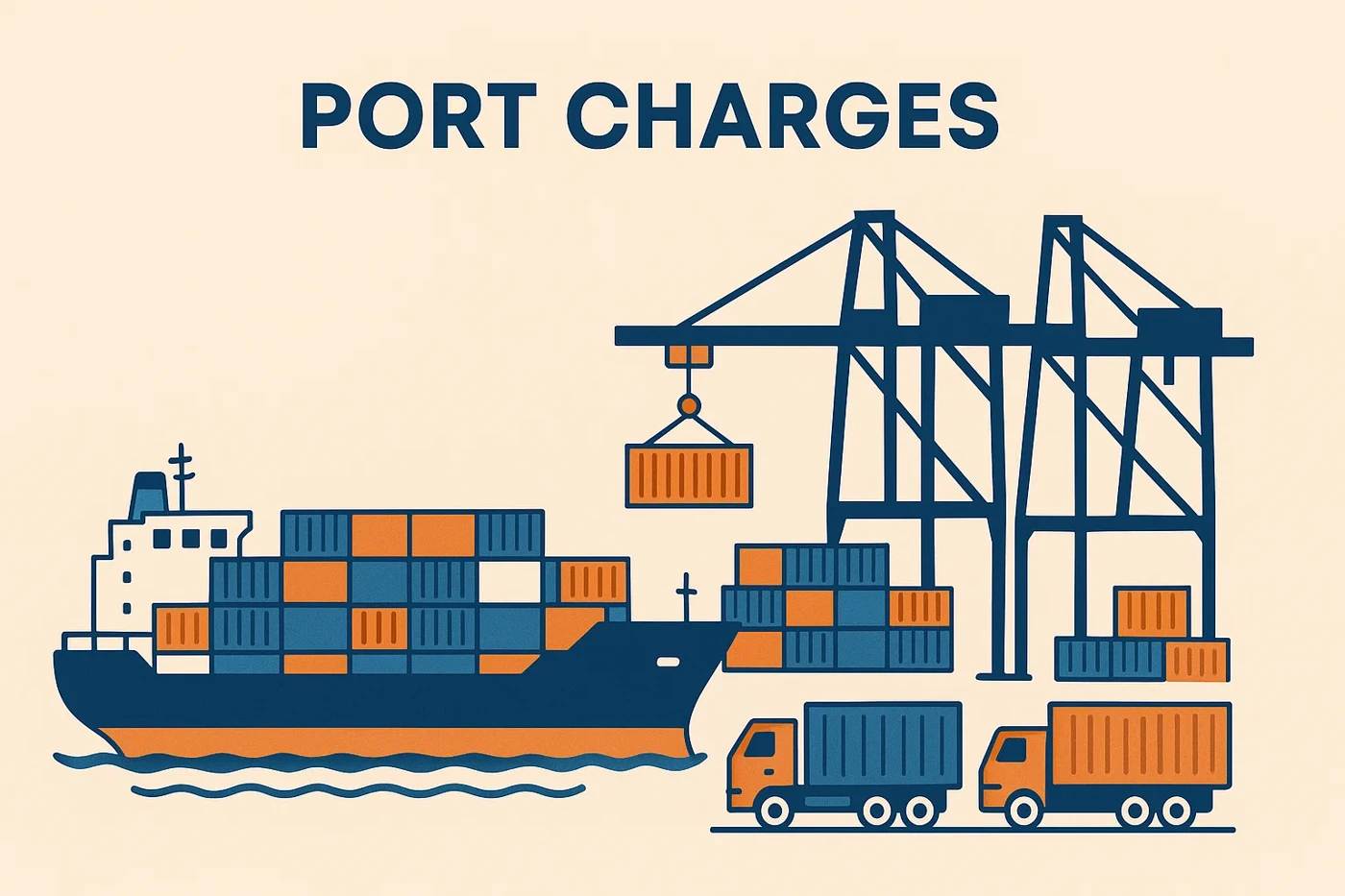When it comes to Full Container Load (FCL) sea freight, the ocean freight you see on a quotation is only part of the total shipping cost. Many shippers are surprised to find there are extra local fees at the port — commonly known as port charges or local charges — which can sometimes add up to a significant amount.
In this article, we’ll break down what these port charges are, why they exist, and what you should keep in mind when planning your shipment.
What Are Port Charges?
Port charges are fees collected by shipping lines, terminals, or logistics service providers for handling your container at both the origin and destination ports. They are not included in the basic ocean freight rate and are usually charged separately.

Common Port Charges in FCL Shipping
Here are the most frequent items you might see on a quotation or invoice:
- Customs Clearance Fee
The cost of preparing and submitting customs declarations at either the origin or destination. - Trucking Fee
The cost of transporting the container between the factory/warehouse and the port (or vice versa). - Booking Fee
A service fee for reserving space on a vessel. - Terminal Handling Charge (THC)
Fees charged by the terminal for loading, unloading, and container handling. - Security Fee (ISPS Charge)
The International Ship and Port Facility Security fee, related to port safety measures. - Seal Fee
The cost of sealing the container with a tamper-proof seal. - Documentation Fee (Bill of Lading Fee)
Charges for issuing shipping documents such as the Bill of Lading or cargo manifest. - Other Possible Charges
Depending on the port and country, you might also encounter container pick-up fees, container return fees, port construction fees, demurrage, or detention charges.
Why Do Port Charges Vary?
- Different ports, different rules: Local port authorities set their own handling fees.
- Different carriers, different policies: Shipping lines may include or exclude certain items from the freight rate.
- Import vs. Export: Costs at the destination port are often higher than at the origin.
How to Manage Port Charges Effectively
- Ask for an “All-In” Quote: Always clarify whether the quoted price includes local charges.
- Understand both ends: Remember that there will be port charges at both the origin and the destination.
- Plan for extra costs: Include port charges in your cost calculation to avoid unpleasant surprises.
Conclusion
Port charges are an unavoidable part of FCL shipping, but with the right knowledge and careful planning, you can anticipate and manage them effectively. Understanding these fees not only helps you budget accurately but also improves your negotiation power with carriers and freight forwarders.
